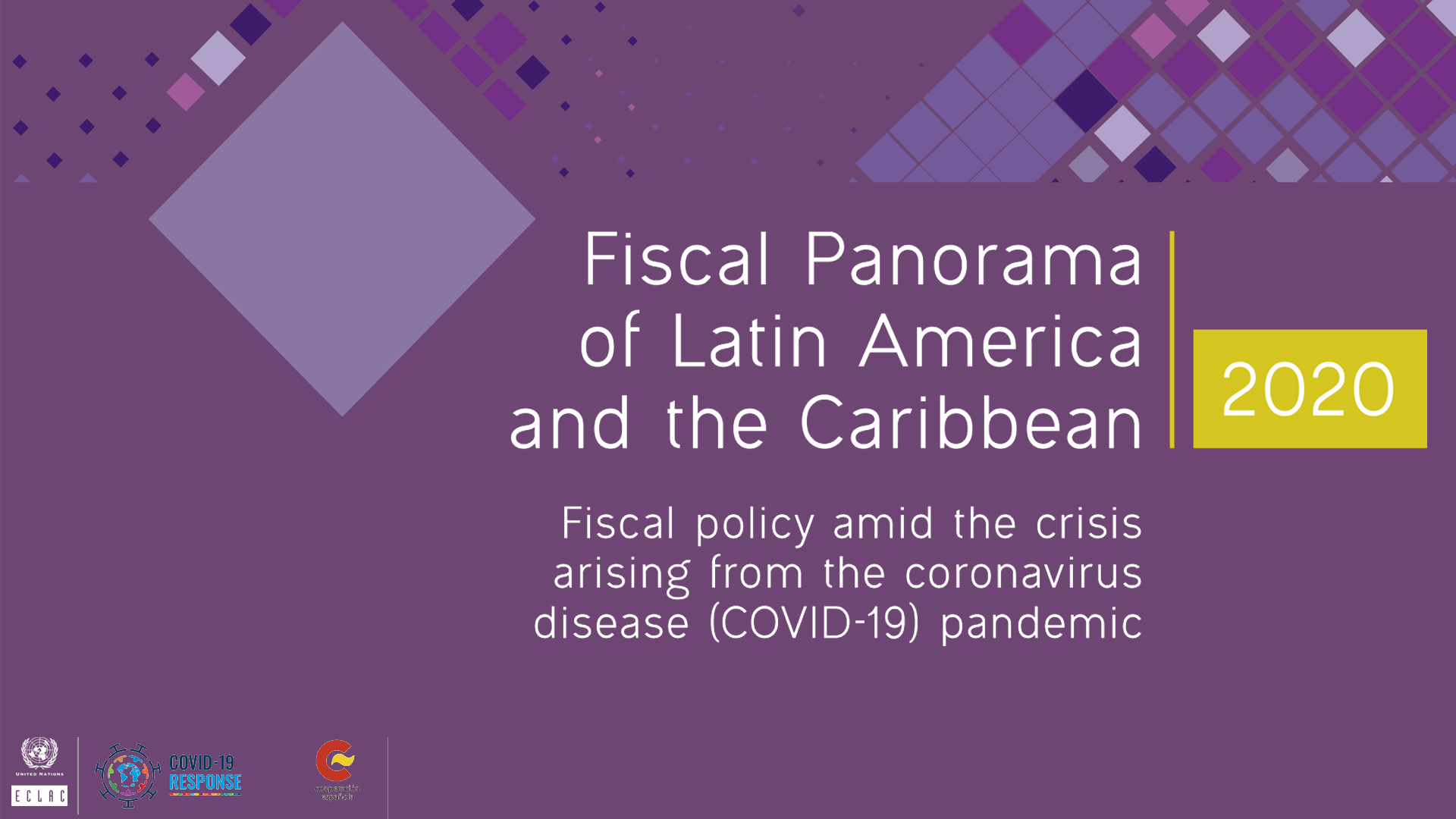Fiscal Policy Must Play a Central Role in Mitigating the Social and Economic Impact Arising from the COVID-19 Pandemic, While Also Contributing to Propelling the Economic Reactivation
Work area(s)
ECLAC launched its annual report, Fiscal Panorama of Latin America and the Caribbean 2020, in which it analyzes the region’s countries’ fiscal response to the human and economic crisis prompted by the coronavirus disease.

Fiscal policy must play a central role in mitigating the social and economic impact arising from the COVID-19 pandemic while at the same time providing the needed impetus to achieve a reactivation of economic activity that would help steer the region towards sustainable and inclusive development in a post COVID-19 world. So states the Fiscal Panorama of Latin America and the Caribbean 2020, an annual publication by ECLAC that was released today on the institution’s website.
The report analyzes the fiscal response of the region’s countries to the human and economic crisis prompted by the coronavirus disease (COVID-19). It highlights the swiftness with which countries have reacted by adopting packages of fiscal measures that represent, on average, 3.2% of the Gross Domestic Product (GDP) of Latin American countries. As the report explains in detail, these packages include measures on public spending, tax relief and liquidity support backed by governments in the region.
Nonetheless, the report indicates that fiscal policy management is currently complicated by an unfavorable and highly uncertain macroeconomic environment. On top of the increased public indebtedness seen in the last decade, countries face a drop in tax revenue, linked to the pandemic, as a result of the contraction in economic activity and lower prices for commodities; at the same time, spending needs for mitigating the pandemic’s social and economic effects are rising quickly.
In this context, ECLAC indicates in the study that the fiscal measures already announced represent a first step along what could be a long path towards recovery in the region. According to the document, in the coming months, and in light of the eventual gradual lifting of confinement measures, countries must take important fiscal stimulus measures with the aim of contributing to the reactivation of economic activity, investment and quality job creation. To achieve that, greater fiscal efforts will be needed, and the region will require adequate access to financing measures.
Along with examining fiscal policy challenges in the current context of the pandemic and the evolution of public finances in 2019, ECLAC’s Fiscal Panorama 2020 analyzes the problem of tax evasion in the region. ECLAC estimates that in 2018, the region lost $325 billion dollars – equivalent to 6.1% of GDP – due to tax noncompliance. Corporate income tax evasion in the region is especially acute. Tax systems in some countries generate less than 50% of the income that theoretically they should collect from this levy, which results in tax gaps of between 0.7% of GDP and 5.3% of GDP. In light of this challenge, the region’s countries are developing a series of actions and innovations to reduce room for evasion and thereby foster the mobilization of domestic resources to finance the 2030 Agenda’s Sustainable Development Goals, the report adds.
COVID-19’s impact in multiple economic and social areas means that the State’s actions via fiscal policy in general, and public spending programs in particular, have greater relevance, the publication underscores. In this sense, the document examines the functional classification of public expenditures between 2000 and 2018. During that period, public spending growth in Latin America was due to greater outlays for financing social policies. In particular, spending on health, education and social protection went from representing 1.5%, 2.9% and 3.2% of GDP in 2000, to representing 2.3%, 3.9% and 4.0% of GDP in 2018, respectively.
However, as the social effects stemming from the pandemic show, these spending levels are not enough to meet the social demands that the region’s countries face today and to provide quality public goods and services. In addition, the report establishes that the policy of fiscal consolidation seen in recent years has curtailed growth in social spending and has led to a contraction in capital expenditures, particularly in relation to investment in transportation.
According to ECLAC, to the extent that the region overcomes the health emergency, an opportunity will arise for countries to rebuild a better reality, with more inclusive and egalitarian societies.
The pandemic has exposed deficiencies in social protection systems, both in the labor market as well as in social security systems, and in the limited crucial provision of high-quality public goods and services. Therefore, the region must accelerate the transition towards social welfare States that guarantee better living conditions for all and establish solid foundations for sustainable development by reducing inequality and strengthening social protection systems – including by adopting a universal basic income – and that provide quality education and health systems along with quality pension systems, the report stresses.
In this sense, fiscal policy must contribute to achieving these goals through a progressive and efficient taxation system and effective and equitable public spending that gives priority to addressing societies’ needs in the region, the document concludes.
Related content
Related link(s)
Country(ies)
- Latin America and the Caribbean
Contact
Public Information Unit
- prensa@cepal.org
- (56 2) 2210 2040